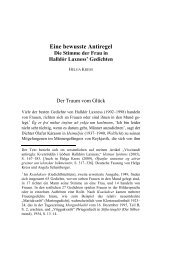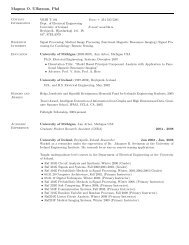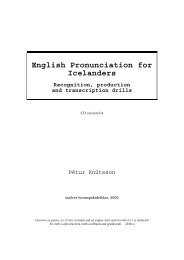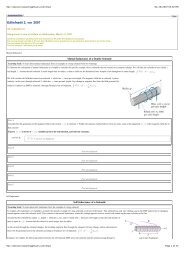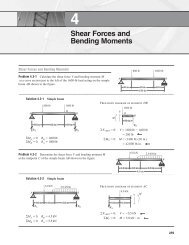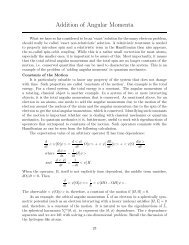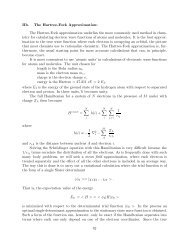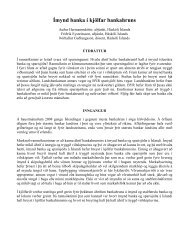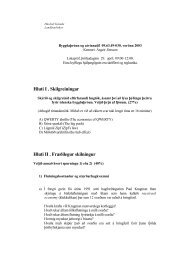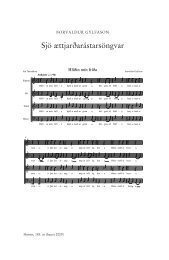MasteringPhysics: Assignment Print View
MasteringPhysics: Assignment Print View
MasteringPhysics: Assignment Print View
Create successful ePaper yourself
Turn your PDF publications into a flip-book with our unique Google optimized e-Paper software.
<strong>MasteringPhysics</strong>: <strong>Assignment</strong> <strong>Print</strong> <strong>View</strong> http://session.masteringphysics.com/myct/assignment<strong>Print</strong>?assig...<br />
Express the power in terms of and .<br />
ANSWER: = Answer not displayed<br />
Part B<br />
Part not displayed<br />
Power in Resistive Electric Circuits<br />
Learning Goal: To understand how to compute power dissipation in a resistive circuit.<br />
The circuit in the diagram consists of a battery with EMF , a resistor with<br />
resistance , an ammeter, and a voltmeter. The voltmeter and the ammeter<br />
(labeled V and A) can be considered ideal; that is, their resistances are infinity<br />
and zero, respectively. The current in the resistor is , and the voltage across it<br />
is . The internal resistance of the battery is not zero.<br />
Part A<br />
What is the ammeter reading ?<br />
Express your answer in terms of , , and .<br />
ANSWER: =<br />
Note that the resistances of the ammeter and voltmeter do not appear in the answer. That is because these two<br />
circuit elements are "ideal." The voltmeter has infinite resistance, so no current flows through it (imagine that<br />
there is a short circuit inside the voltmeter). The ammeter has zero resistance, so there is no voltage drop as<br />
current flows through it.<br />
Part B<br />
What is the voltmeter reading ?<br />
Part B.1 Potential difference across the internal resistance<br />
Express your answer in terms of , , and .<br />
ANSWER: =<br />
Part not displayed<br />
In the following parts, you will express the power dissipated in the resistor of resistance using three different<br />
sets of variables.<br />
Part C<br />
What is the power dissipated in the resistor?<br />
Express your answer in terms of and .<br />
ANSWER: =<br />
Part D<br />
10 of 11 17/4/07 15:38



